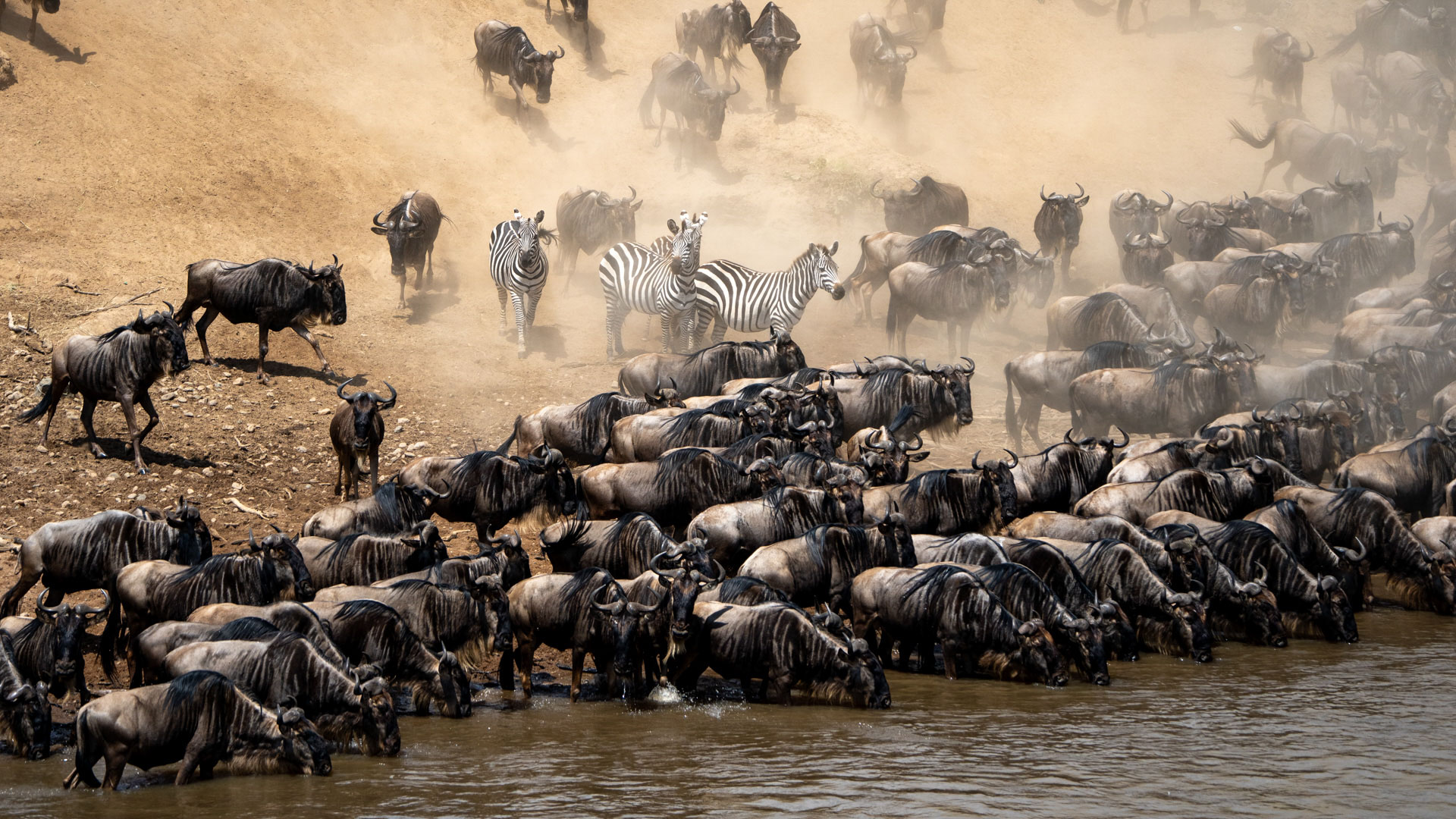
It's always exciting to return to the Mara after being away. This time, however, was better than usual as I came back to the action of the Great Migration. We were also treated to some much-needed rain that showered most parts of the Triangle, drastically reducing the amount of dust that had accumulated over the many dry weeks, which we are most grateful for during our drives. The areas that recently underwent controlled burning will benefit the most from the rain as the fresh grass will sprout, attracting lots of small game and leading to increased cat activity — which we are always excited for.
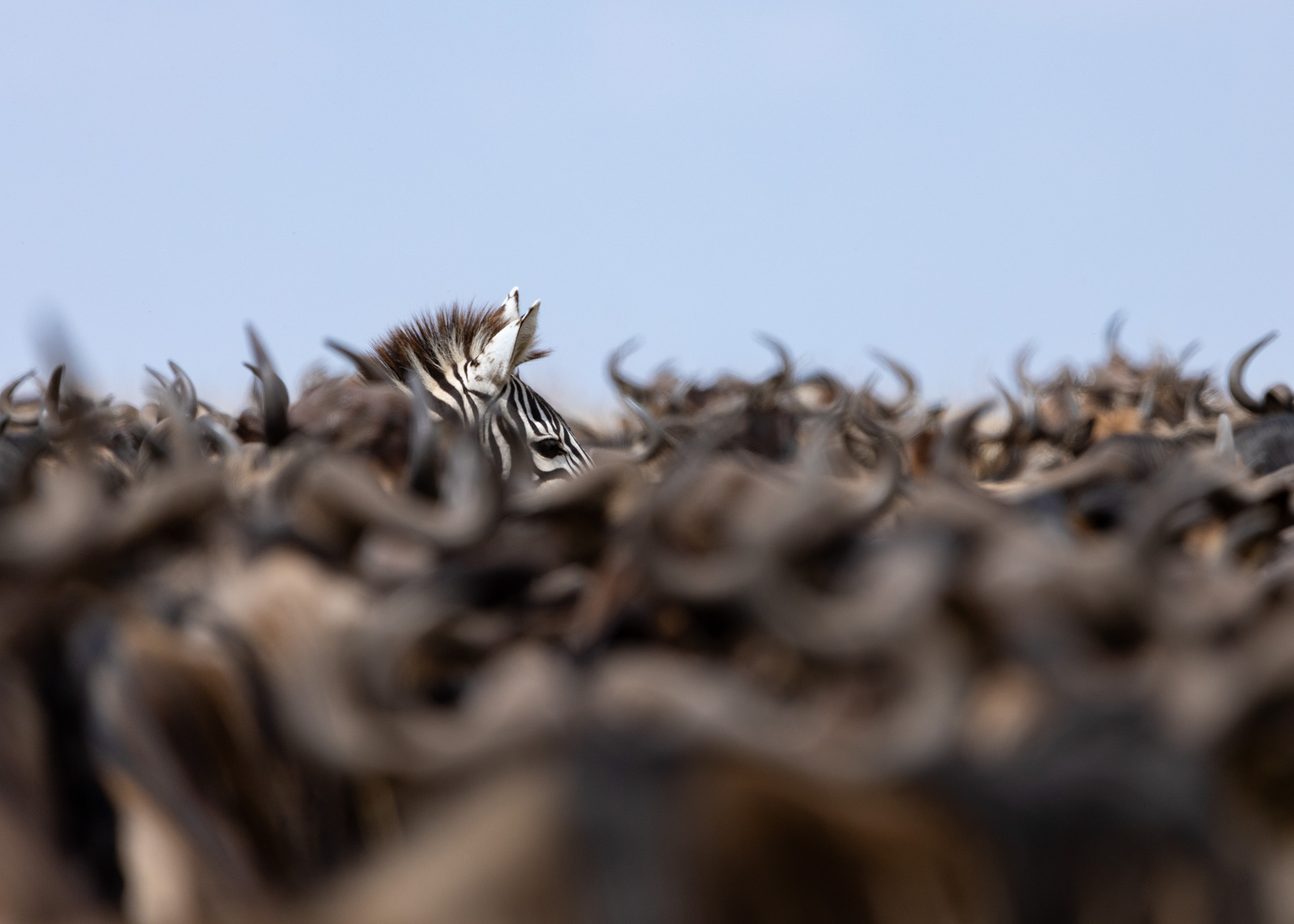
As thousands of wildebeest continue to stream into the Mara from the Serengeti, crossings at the Mara River are some of the most dramatic. While it may seem as if the herds all move as one, this is not always the case. At U-Crossing (one of several crossing points along the Mara River), my interest was piqued by the few wildebeest who decided they were not ready to swim that day, despite the rest of the herd forging ahead.
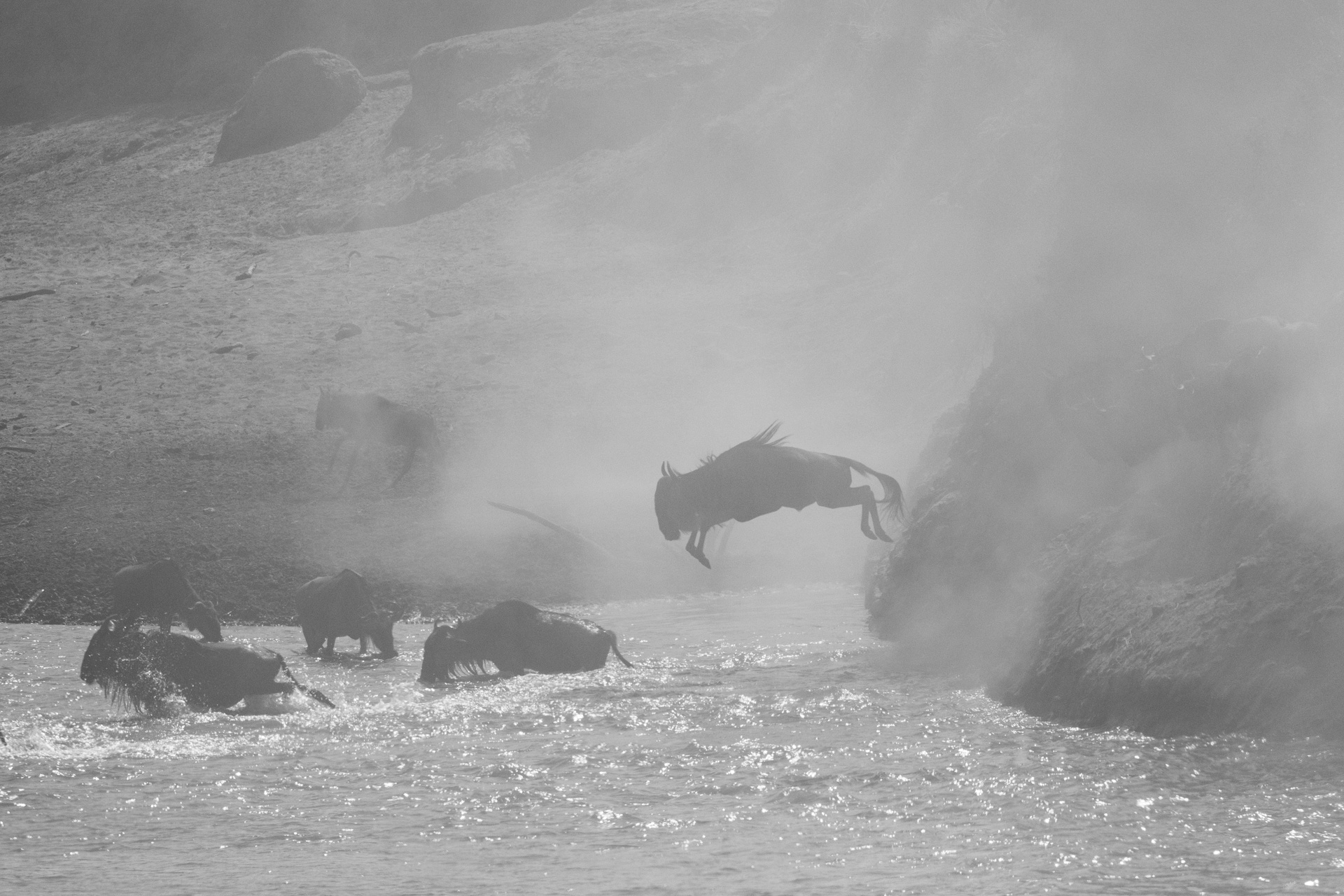
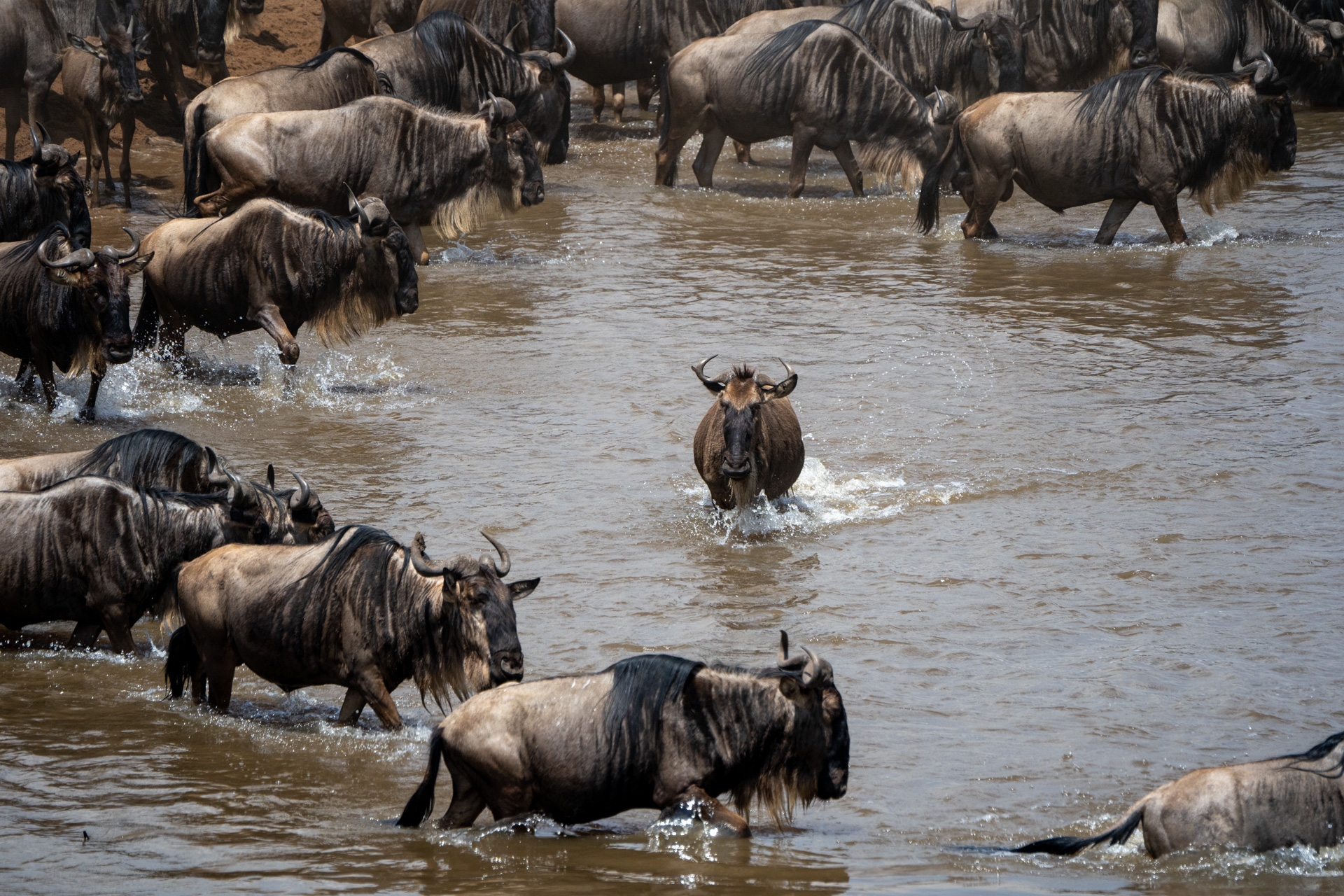
For about eight minutes, these hesitant wildebeest observed their counterparts, some of whom successfully navigated the rocky riverbed, while others fell victim to the unforgiving stampede — tragically losing their lives or barely escaping with broken limbs. The crossing unfolded with a mix of courage and caution, emphasising the unpredictable nature of this natural phenomenon.
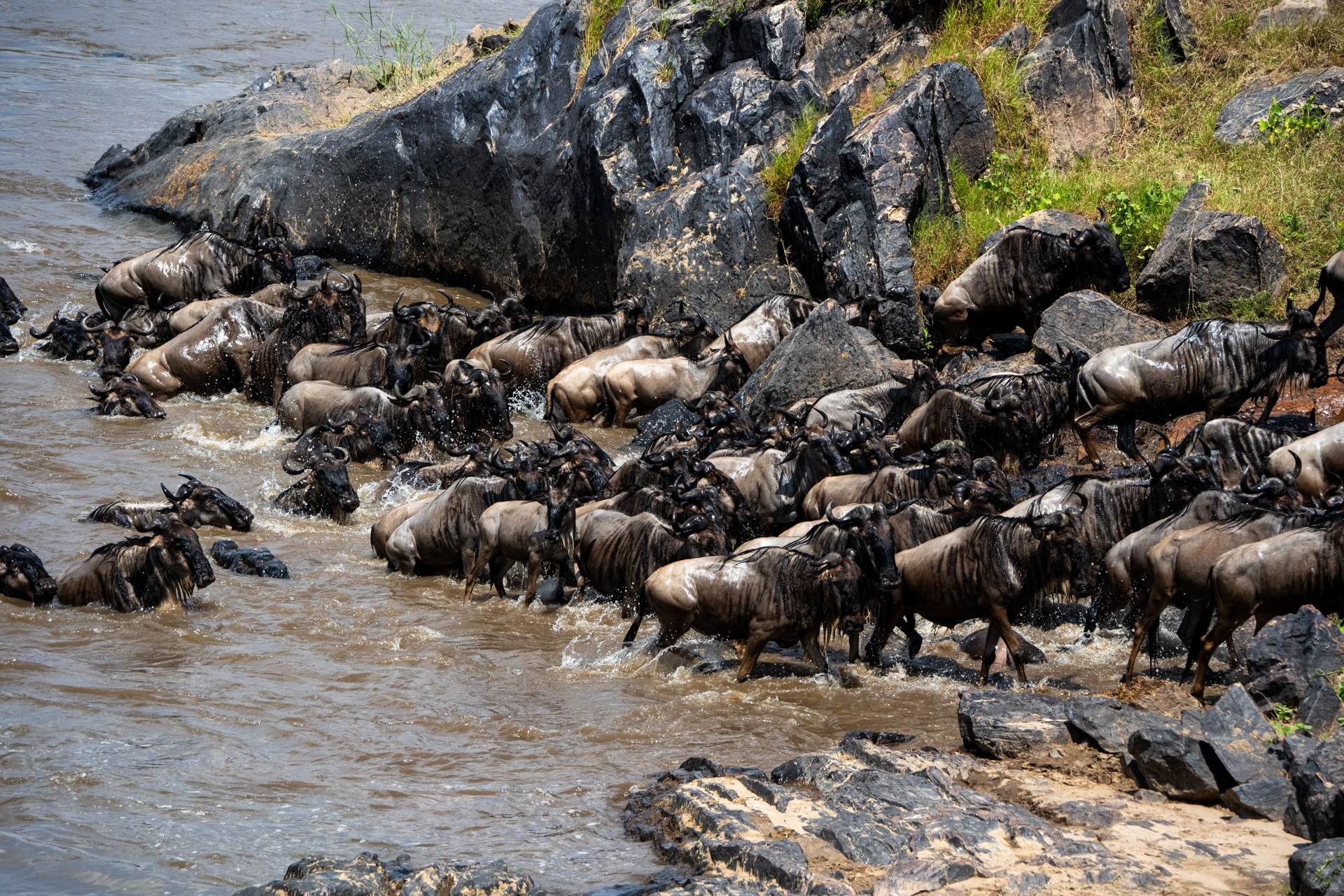
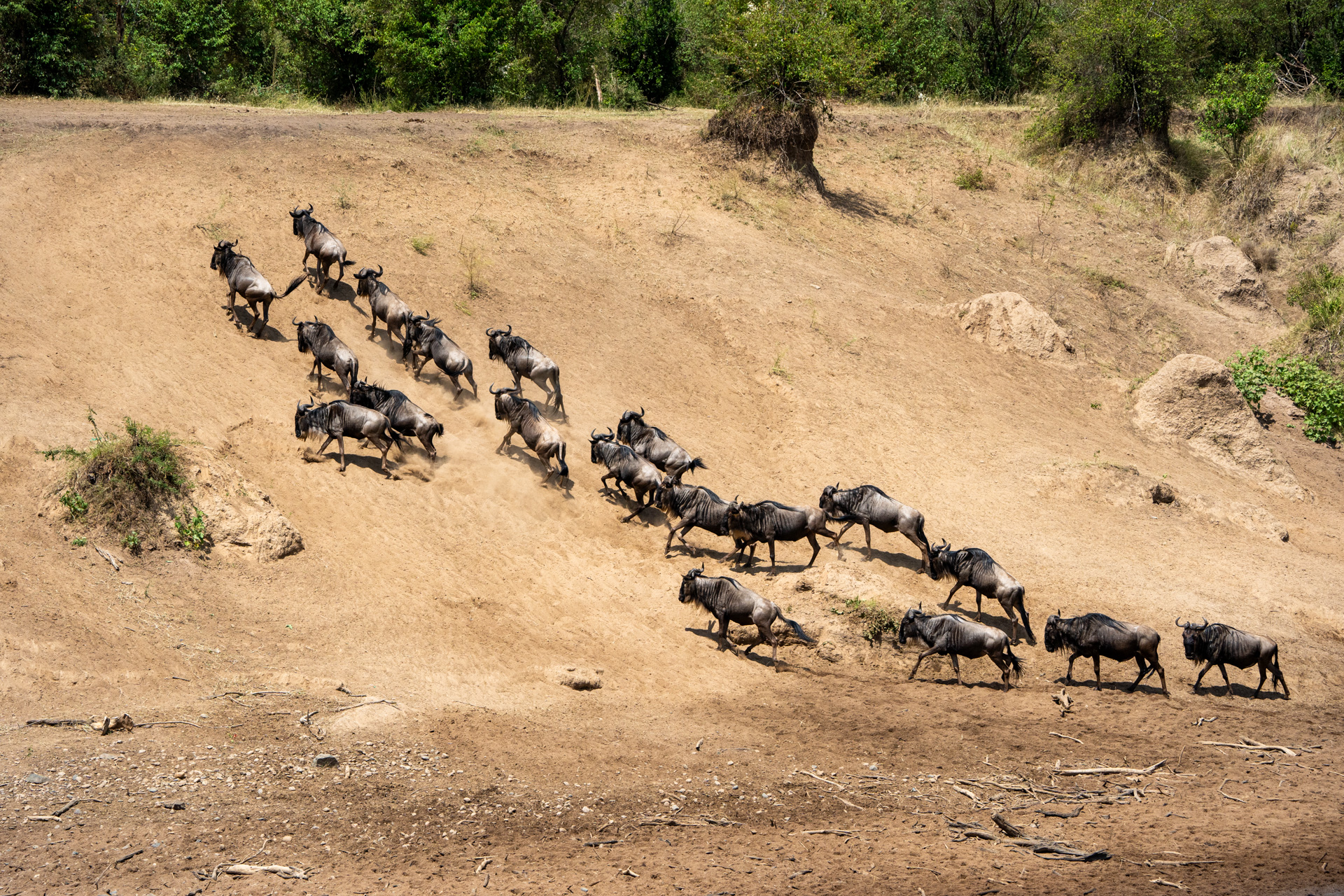
On a different day, Angama guide Wilson witnessed a more dramatic crossing at Main Crossing, this one posing even more threat to the wildebeest. Not only was it rocky, but it was also heavily infested by Nile crocodiles. The crocs were eagerly awaiting their next meal and wasted no time in snatching one, as evidenced by the grisly scenes.
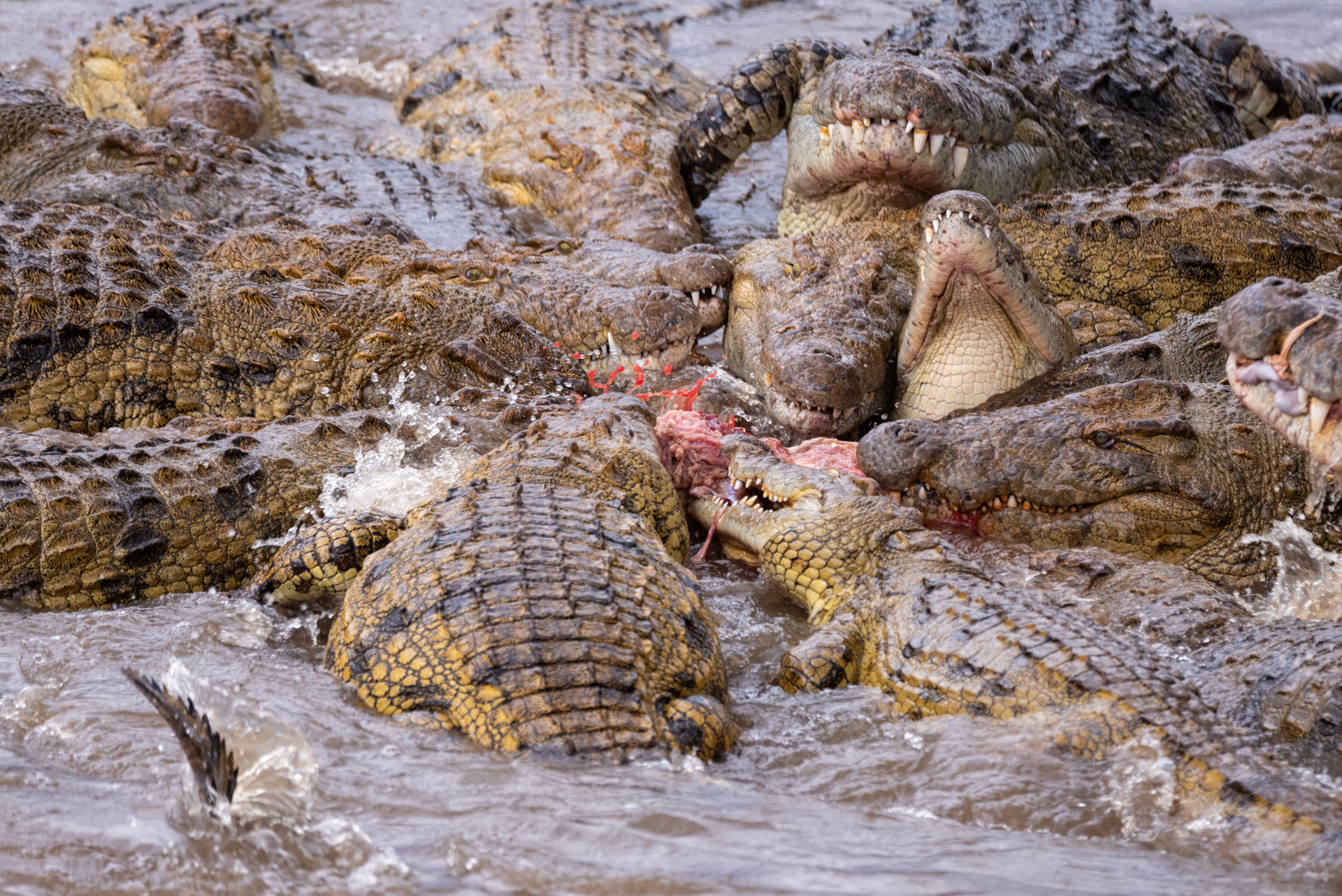
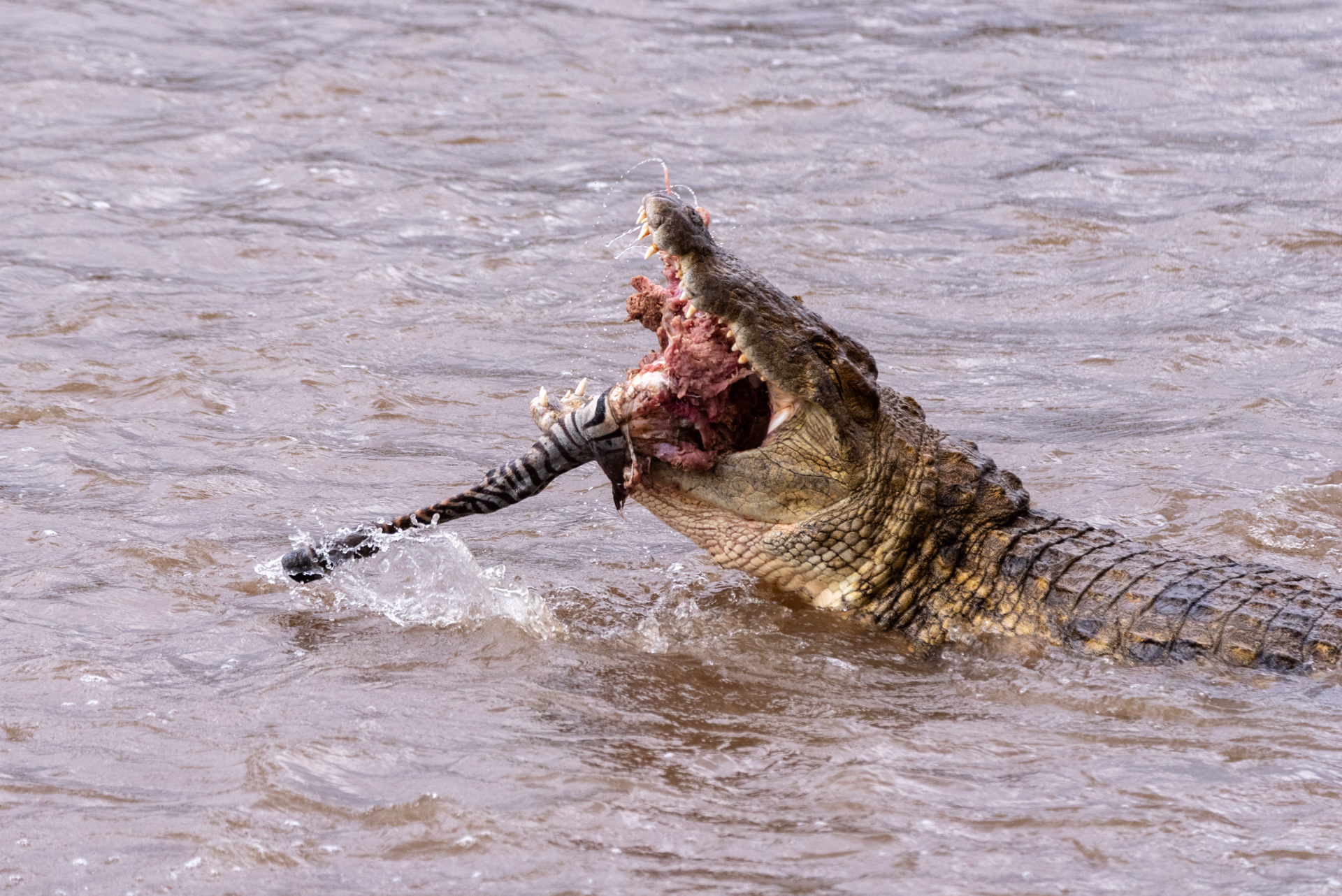
The rather gruesome event saw a few zebras land in the crocodiles’ terrifying jaws. Within seconds, the brown colour of the river swiftly turned red as blood splashed in all directions, with each crocodile grabbing a piece of zebra for lunch.
Towards the southern part of the Triangle, big herds of gnus (another name for wildebeest) are scattered all over the landscape — stretching from the Kenyan side of the border into Tanzania. The sheer number of animals is truly a sight to behold.
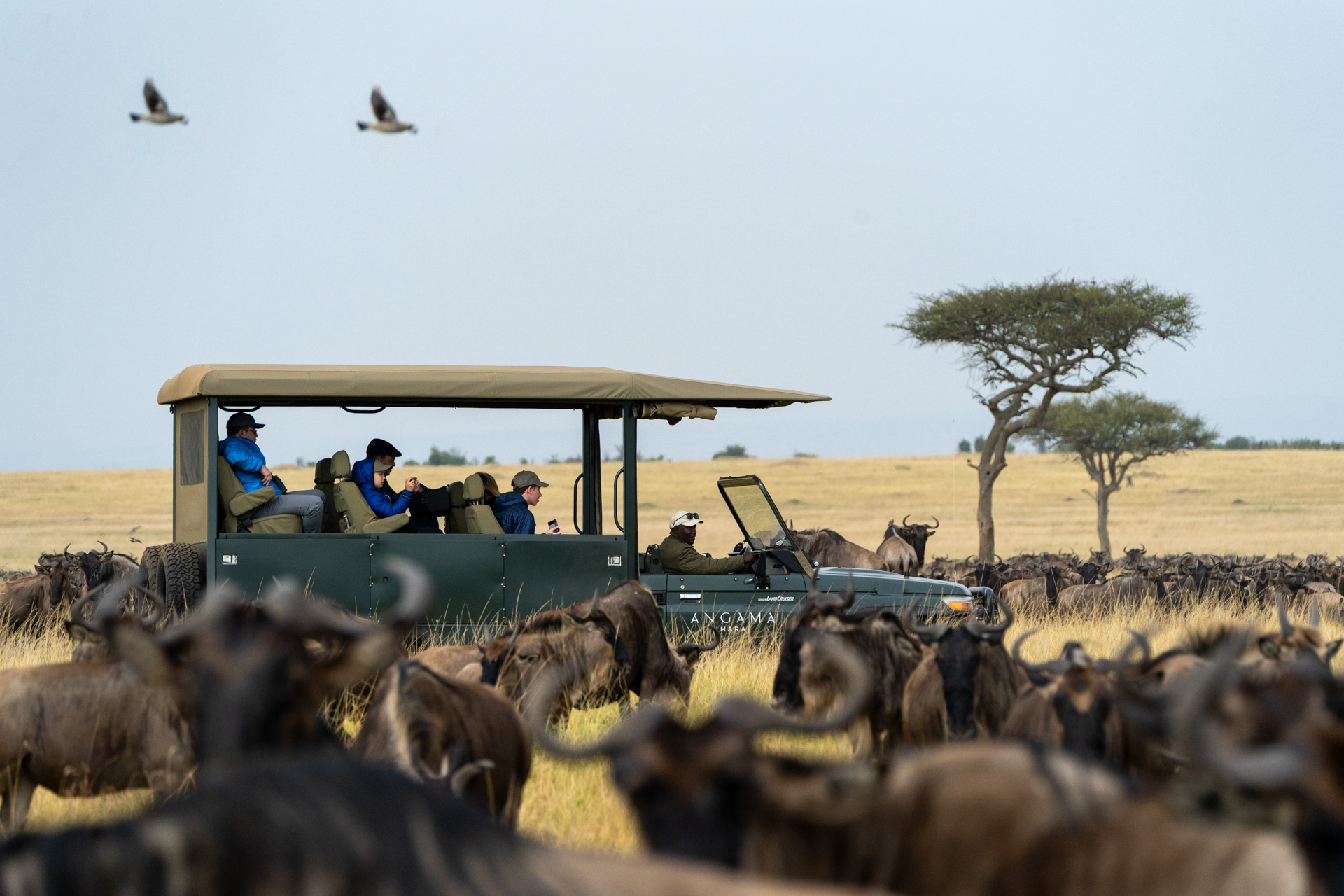
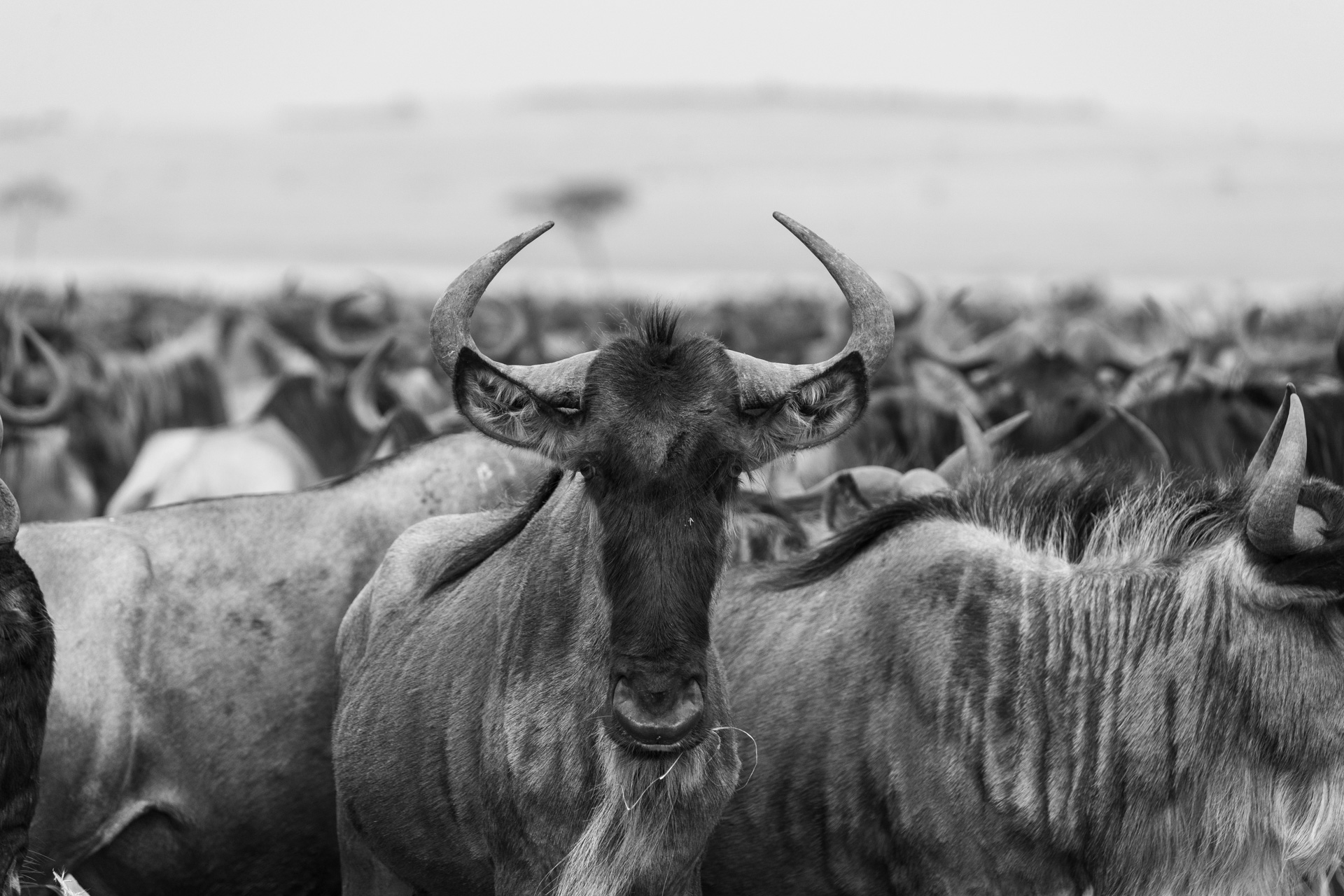
Away from the action at the crossings, we caught up with two females from the Border Pride, enjoying the abundance that comes with the Migration. As we drove along the border, we noticed a commotion from a distance, where wildebeest were clearly running away from something. Upon arriving at the scene, we saw two lionesses had just caught one of the wildebeest and were quick to dive in, indicating they desperately needed a meal. The sound of their teeth gnawing through flesh certainly commands respect for these fierce cats that rule the savannah.
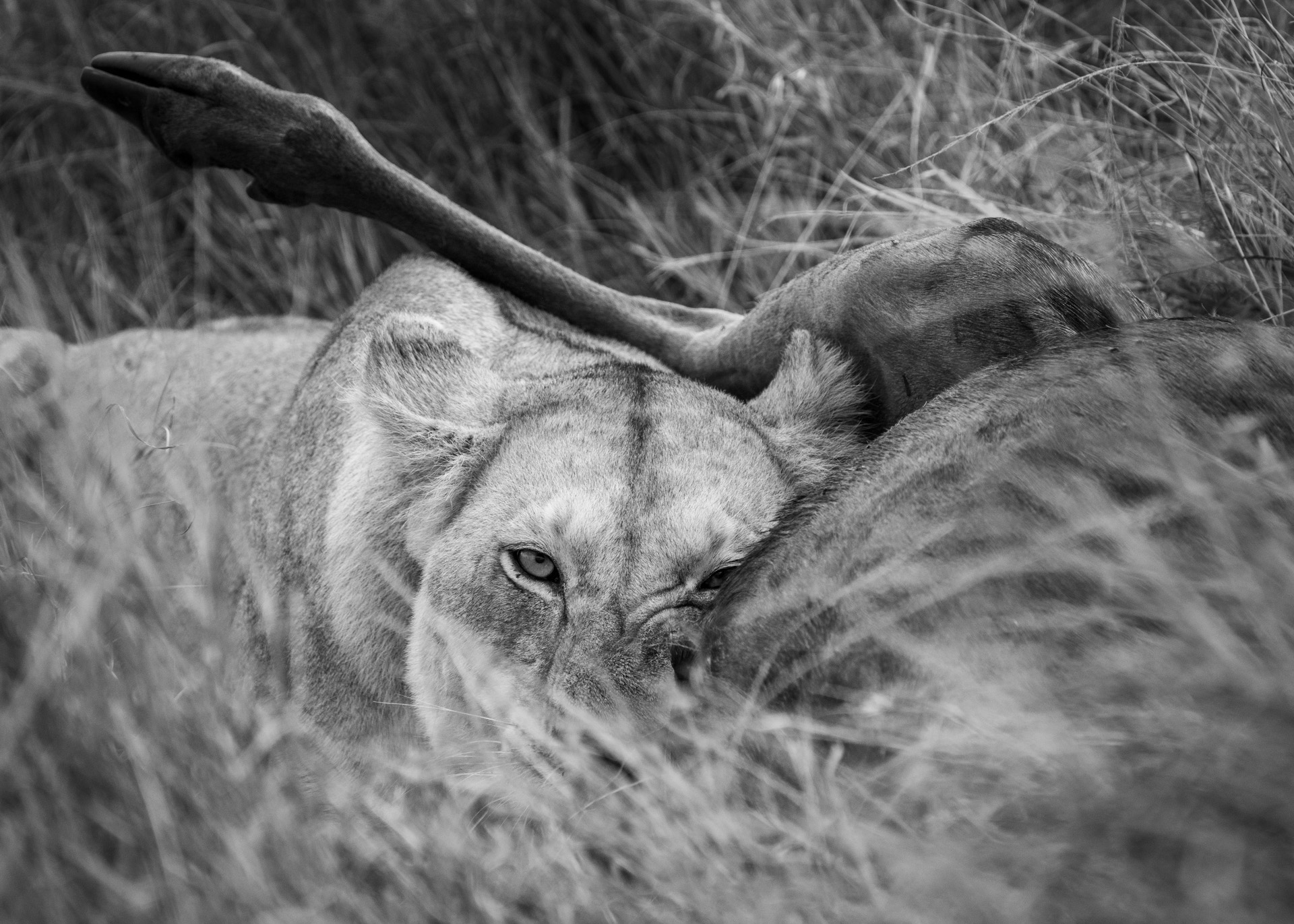
True to the nature of safari, some days are more eventful than others and every day is unpredictable — the perfect recipe for adventure. Just a few minutes drive from the border, as we were approaching the Salt Lick area, the radio chatter was suggesting a large male leopard strolling in our direction. I put my shutter speed up and crossed my fingers. These cats are tricky, one minute they are in plain sight and the next, they are just a story you heard on the radio.
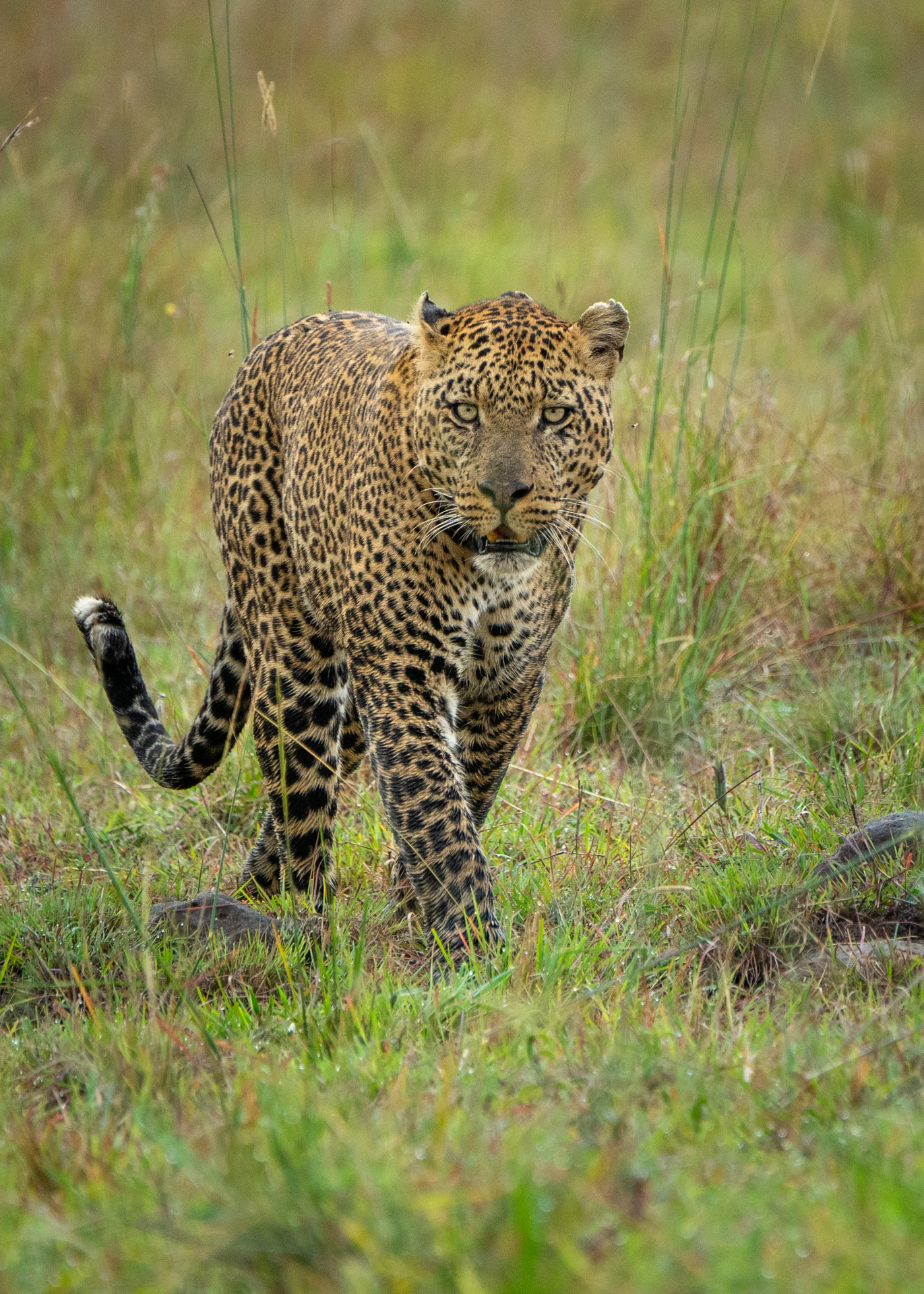
Wilson, who was guiding us, predicted his path and positioned our safari vehicle to allow for the best possible view and opportunity to capture some great shots. Soon the leopard came into view and we were able to identify him as the Salt Lick male. His intense eyes locked with my camera as he majestically walked towards and eventually past us, aiming for a nearby fig tree. The guests were treated to a spectacular sighting as we watched him make a few circles around the tree, marking his territory and eventually climbing up the tree to have a rest.
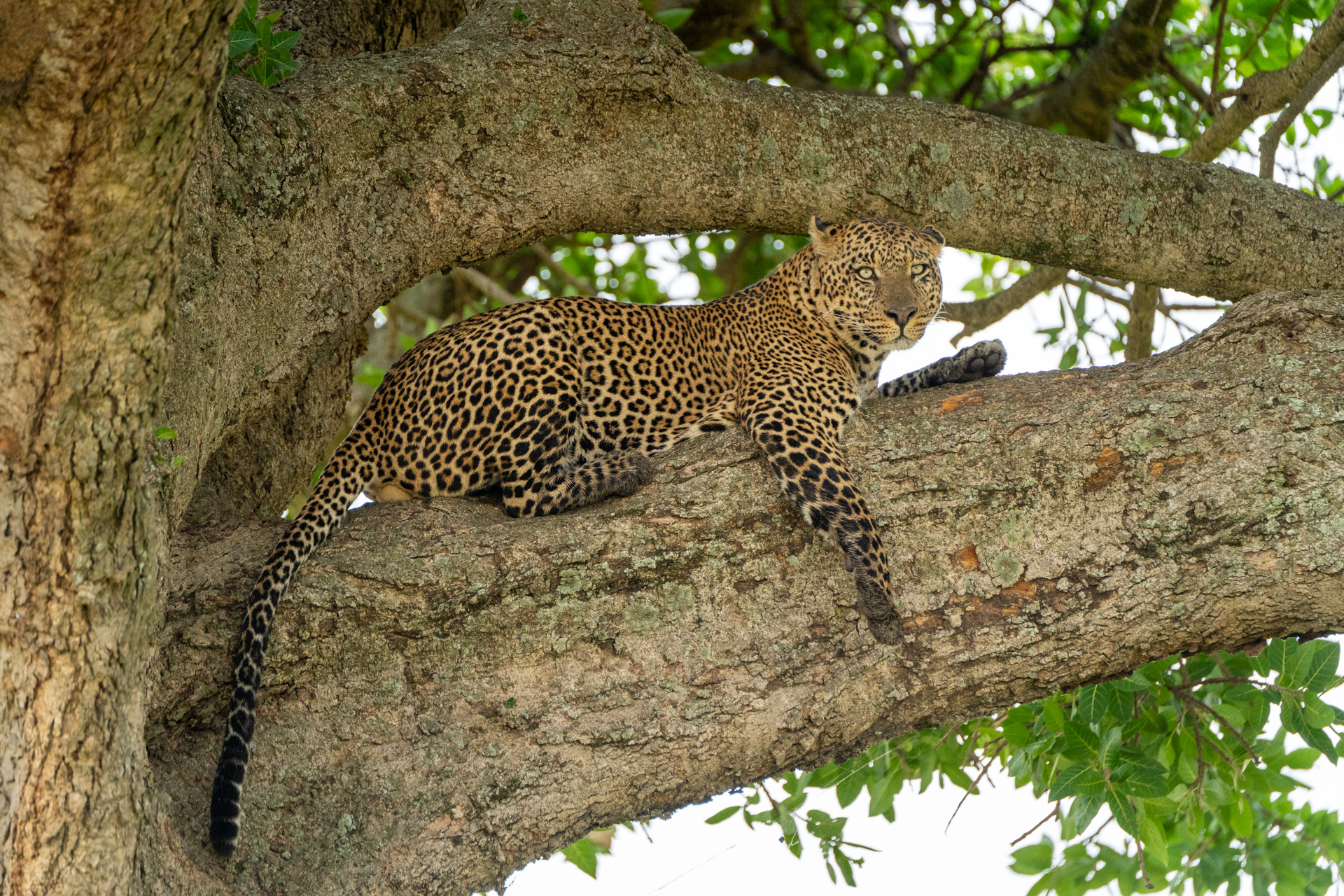
In other feline news, the Bila Shaka boys' territory is filled with drama, making the story an interesting one to follow. The dynamics here continue to shift in the most unpredictable direction. Mrefu (a member of the Serena Pride, further south) has been spotted in the territory, seemingly engaged in a heated altercation with the Mugoro Pride. It seems Mrefu is likely on a mission to expand his territory into the volatile Bila Shaka territory. We are keen to see what unfolds in the coming weeks.
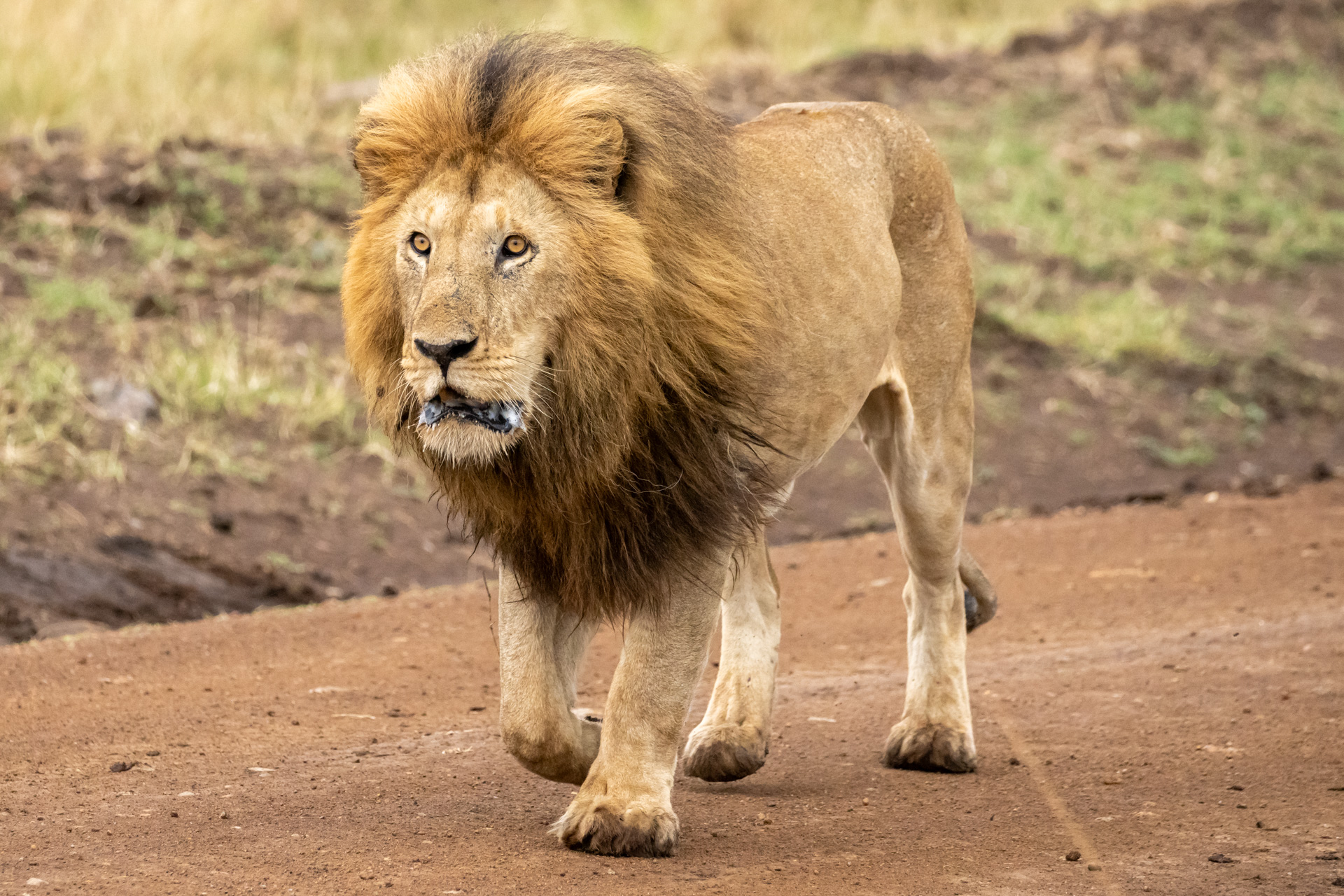
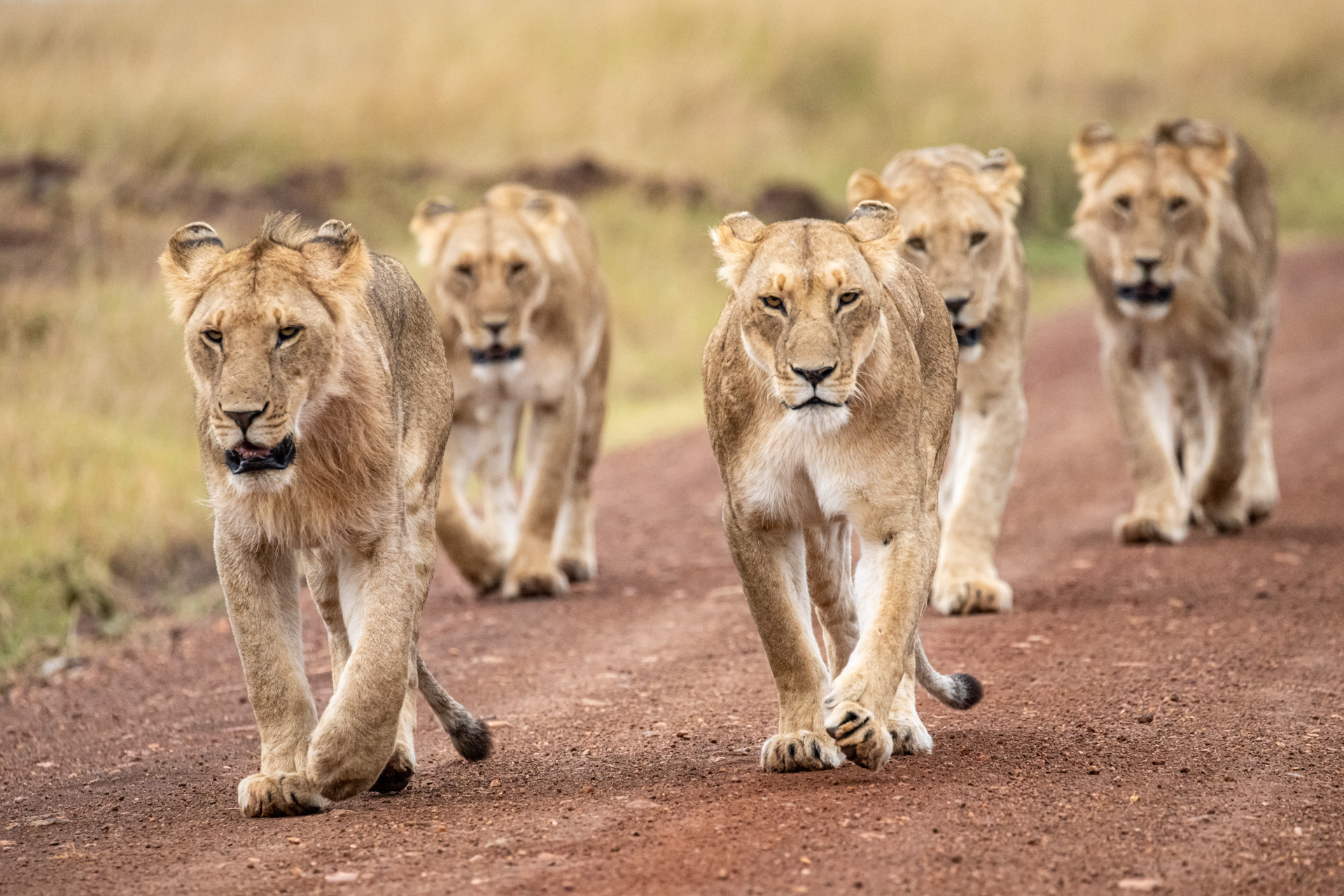
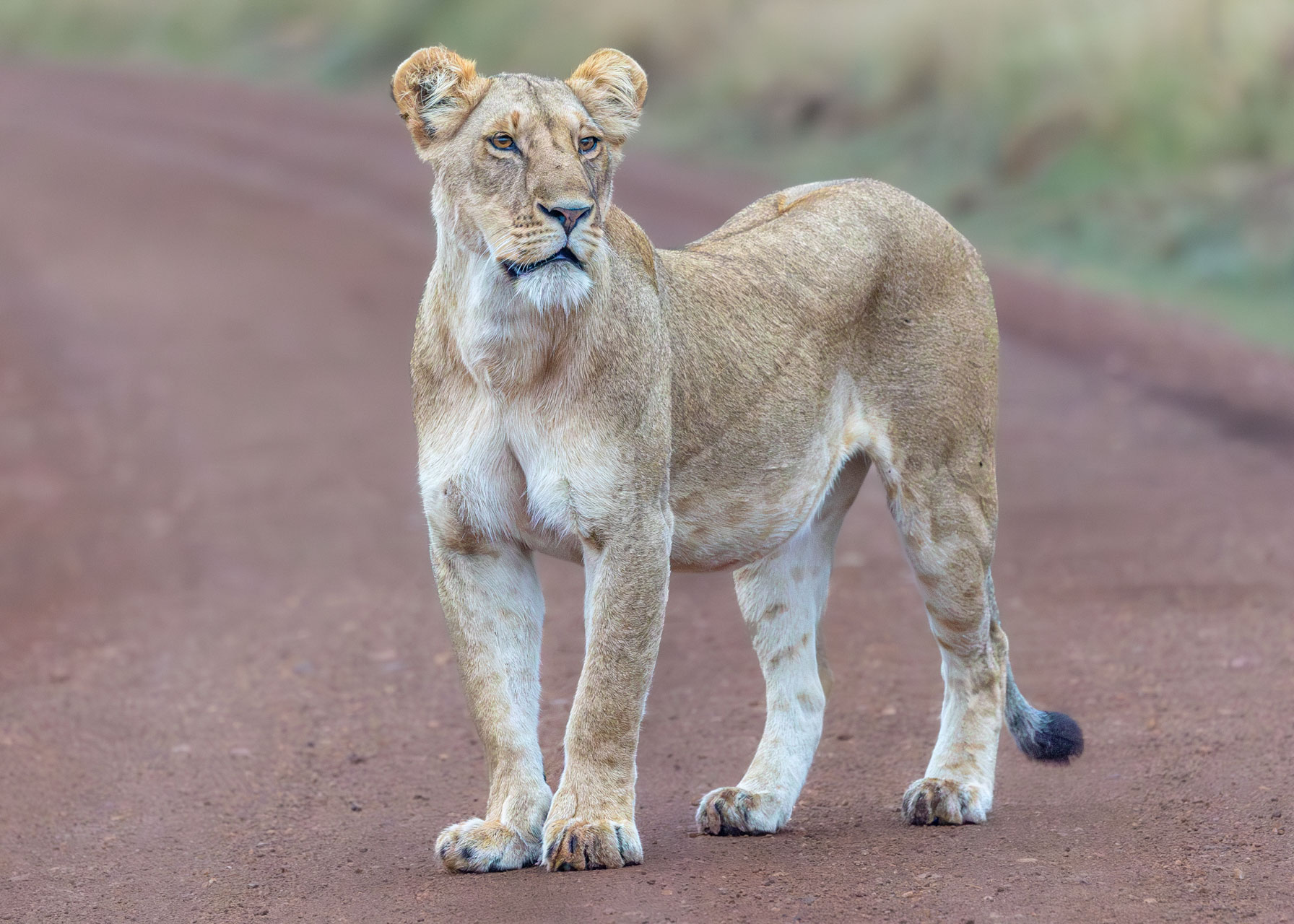
While it seems everyone has been snacking away this week, the avian species are no exception. These feathered creatures play diverse ecological roles, rendering them indispensable components of the ecosystem. Their mere presence enriches the health and functionality of the natural world, not to mention the fascination they bring — making them a delightful spectacle to observe.
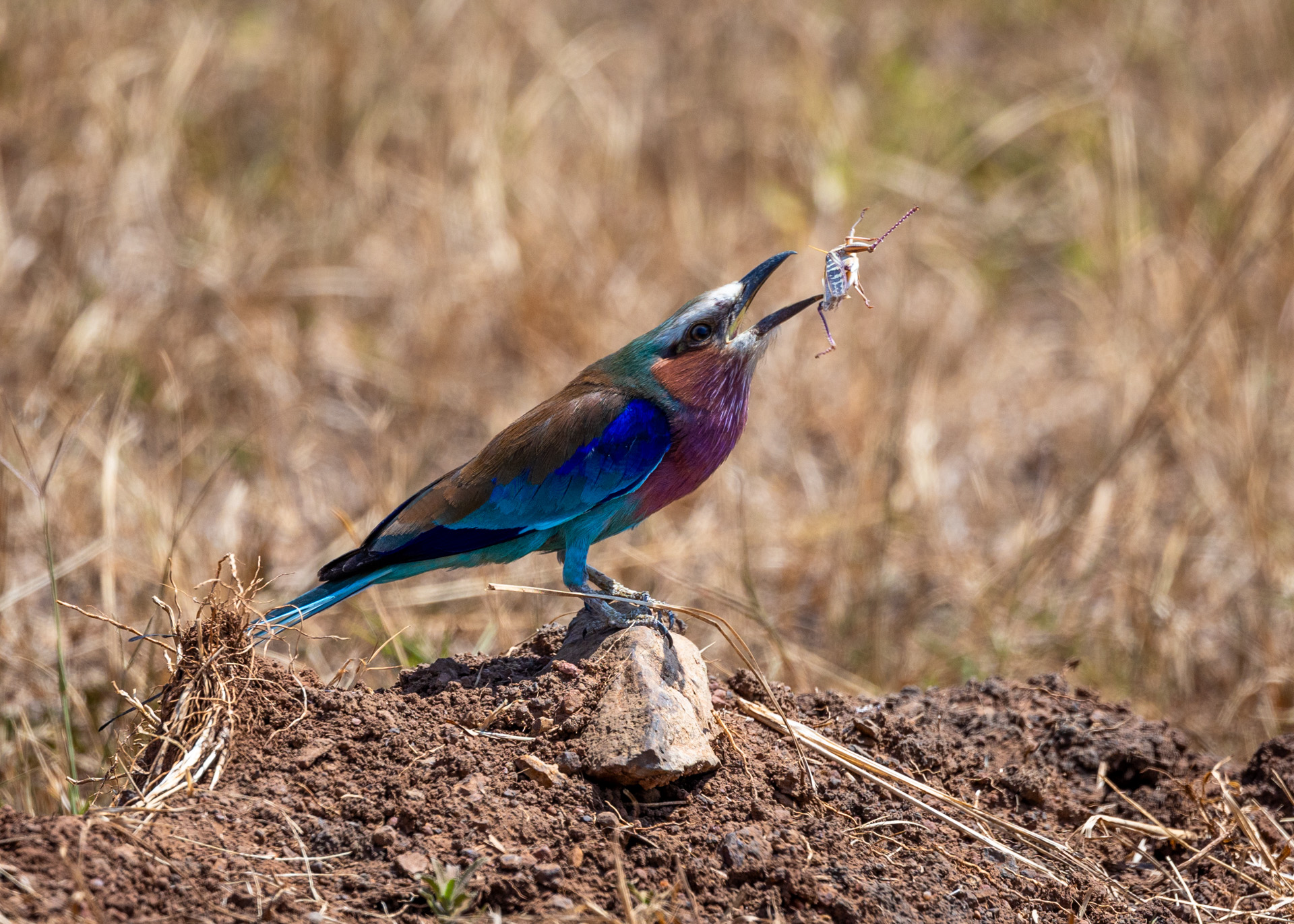
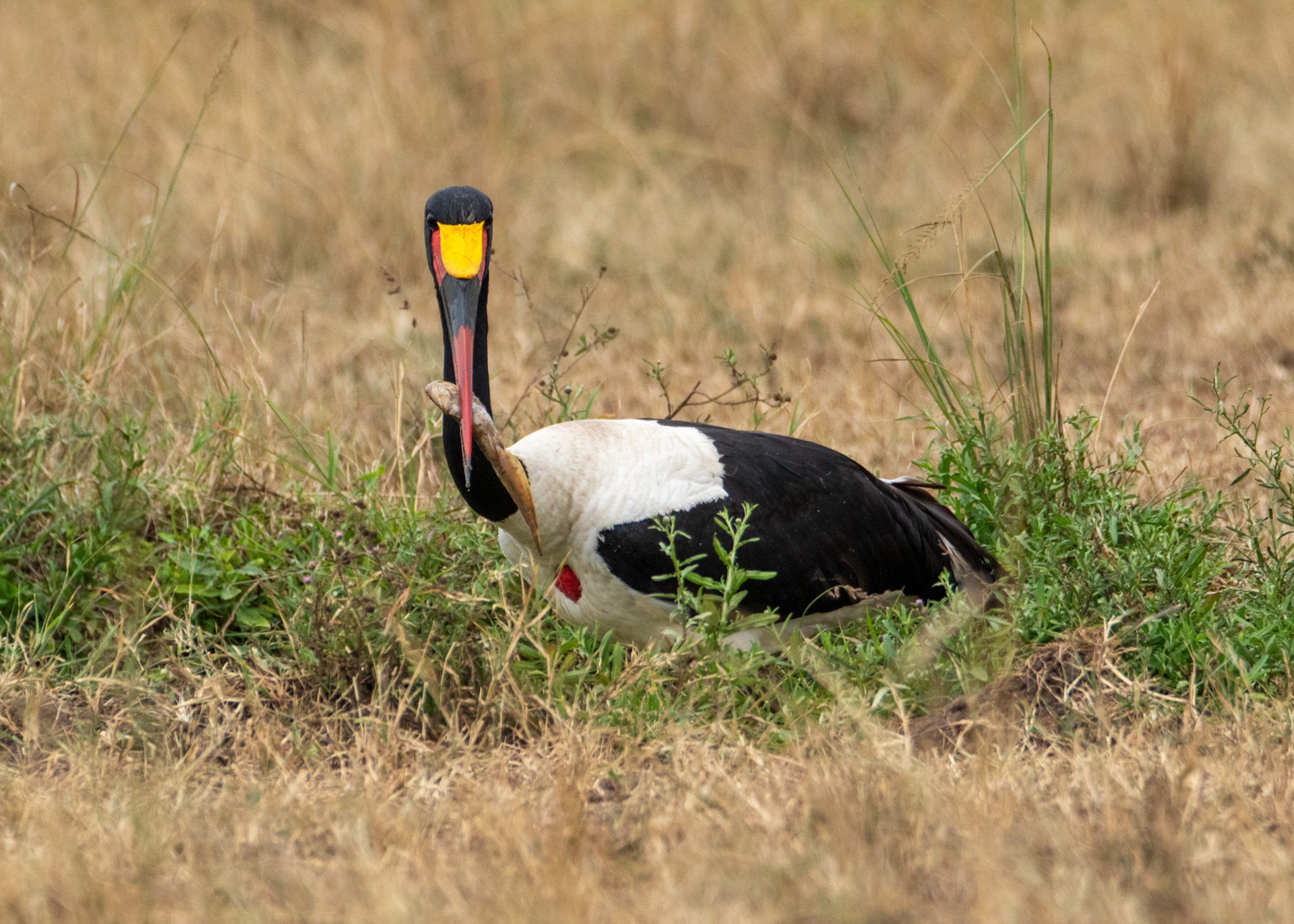
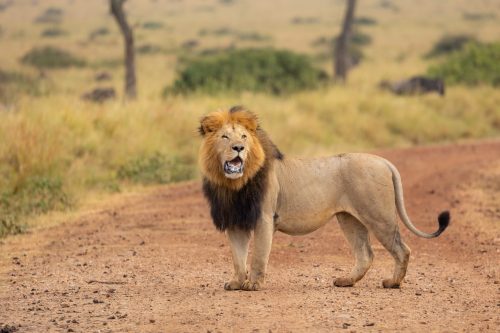
Exactly one year ago, Chongo of the Bila Shaka Coalition was on a solo mission behind enemy lines to find a new mate and possibly try to increase their territory. It's incredible to think that in under a year, they seem to have left that all behind.
Filed under: This Week at Angama
Subscribe for Weekly Stories
Comments (0):
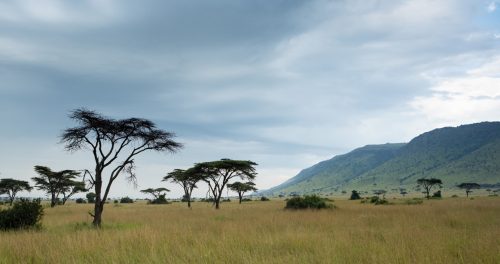
Angama Safari Camp